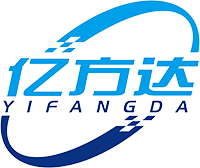Injoinic launched the fast charging protocol chip IP2736U, with comprehensive protocol support, further upgrading the charging experience
Foreword
With the widespread popularity of smartphones, tablets, and other portable devices, the demand for efficient and fast charging solutions has increased dramatically. Simultaneously, the diversity of various charging standards and protocols has led to the complexity and incompatibility of charging devices.
ChargerLAB understands that InnoPower has launched a fast charging protocol chip, IP2736U, which supports the USB PD3.1 28V EPR gear and a comprehensive range of fast charging protocols such as PD3.0/PPS. It boasts excellent compatibility, providing users with a better charging experience and offering a more convenient, efficient, and safe charging solution for products.
InnoPower IP2736U
The InnoPower IP2736U is a multi-protocol integrated fast charging protocol chip for USB ports. Supporting various mainstream fast charging protocols currently on the market, it provides a complete solution for single-output applications such as adapters and car chargers.
The IP2736U integrates multiple protocols, including USB Power Delivery (2.0/3.1), Type-C protocol (Source), PD2.0/PD3.1/PPS/EPR 28V protocol, and recognition and support for E-Marker cables. Additionally, the IP2736U supports QC5/QC4+/QC3+/QC3.0/QC2.0 protocols and Class B voltage levels, effectively improving charging safety.
In terms of output fast charging, the IP2736U integrates FCP/SCP, AFC, SFCP, and MTK PE+ 2.0/1.1 output fast charging protocols. PE+ 2.0 supports 5~20V (0.5V/step), and PE+ 1.1 supports 5V, 7V, 9V, and 12V. The IP2736U also obtains the UFCS fusion fast charging protocol, certification number: 0302247161585R0M-UFCS00009. Finally, the device is compatible with BC1.2, Apple, and SAMSUNG mobile phone fast charging functions.
The IP2736U integrates programmable voltage loop control with a minimum step of 10mV, achieving highly accurate power adjustment. It also integrates programmable current loop control and low-end current detection, providing more flexible and precise current adjustment capabilities. The chip introduces line loss compensation and supports multiple voltage adjustment methods, achieving precise voltage control through PWM controller feedback. It can also drive and control optocouplers and allows flexible remote control via the I2C interface.
In terms of power management, the IP2736U integrates NMOS drive and NMOS voltage drop detection, enabling effective control and monitoring of the power supply, thereby improving system performance, stability, and safety. The IP2736U has a built-in automatic discharge control function and supports low-power standby mode, extending device lifespan and reducing system power consumption.
To ensure system stability and safety, the chip incorporates multiple protection mechanisms, including output overcurrent, overvoltage, and short-circuit protection. It supports up to four NTC overtemperature protections and has a built-in NTC open circuit detection function. Furthermore, it achieves DP/DM/CC1/CC2 overvoltage protection, and these channels support high voltage resistance up to 20V.
The InnoPower IP2736U uses a QFN24 package and requires only a minimal number of external components during application, effectively reducing the overall solution size and lowering BOM costs. It is suitable for single-output applications such as mobile power supplies, adapters, and car chargers.
Related news





